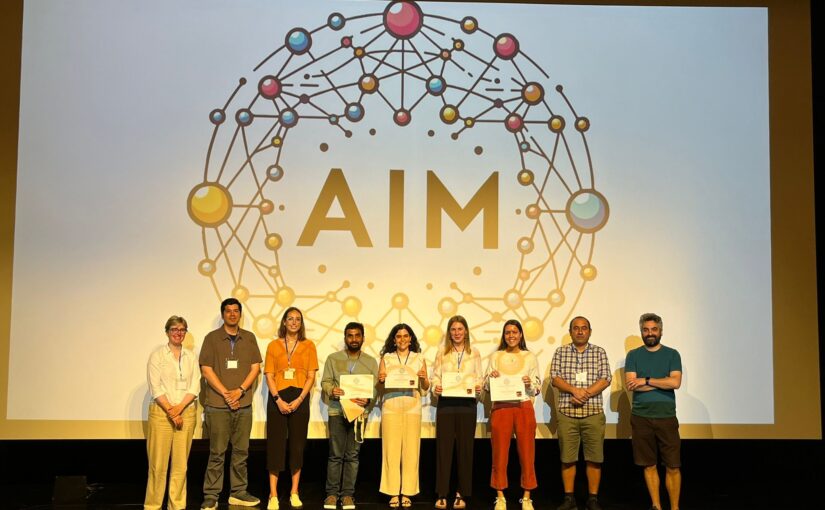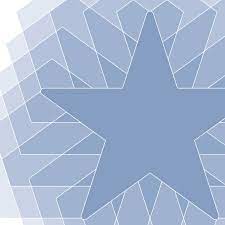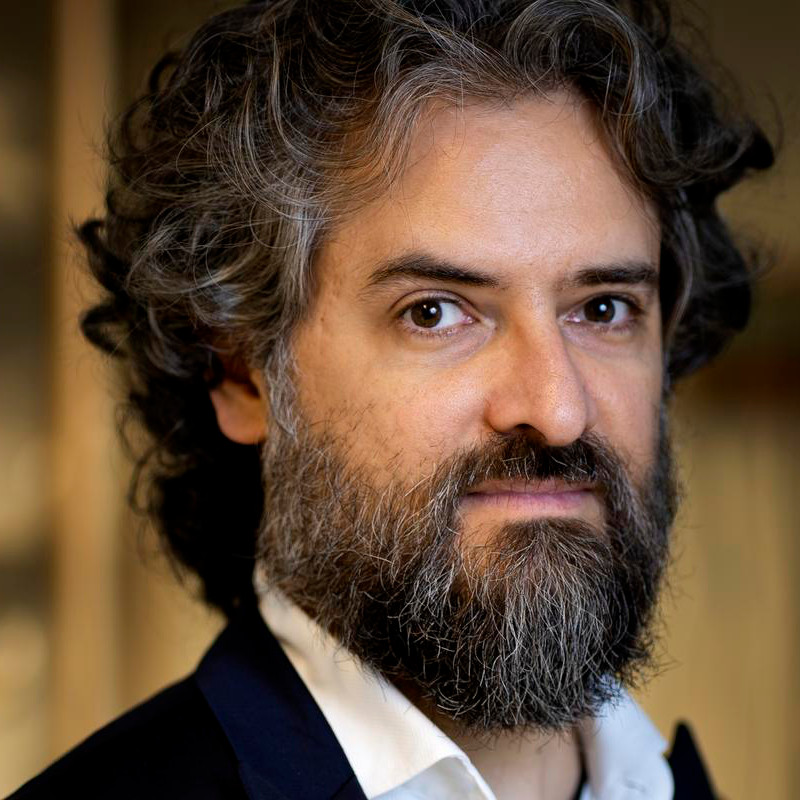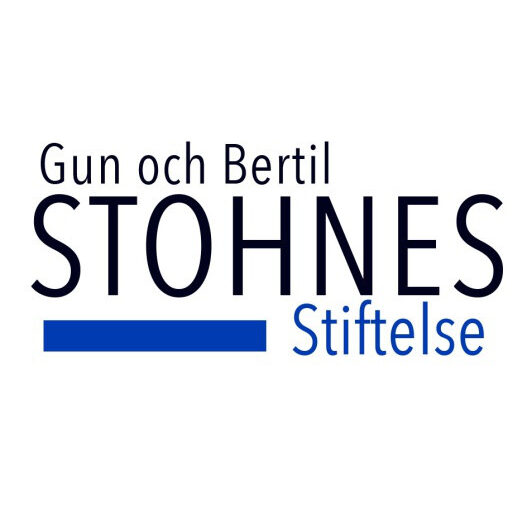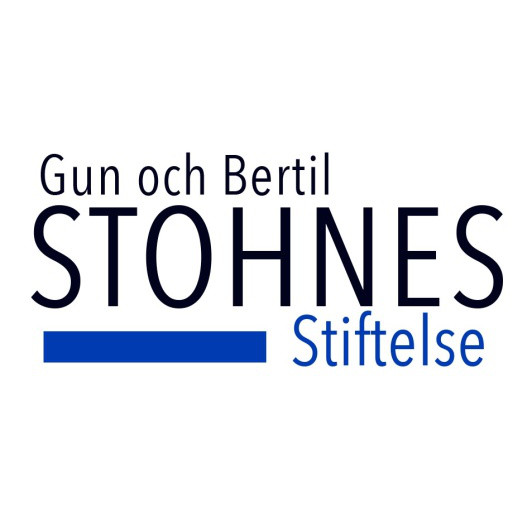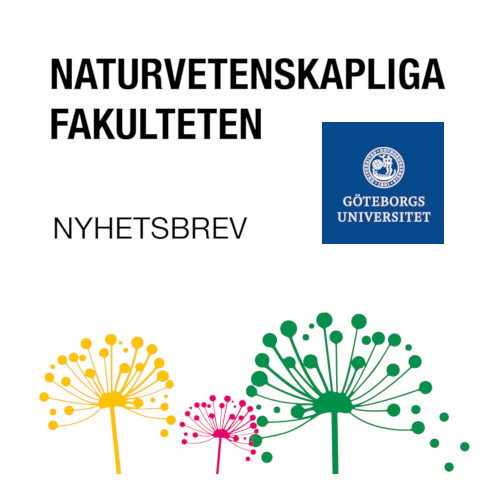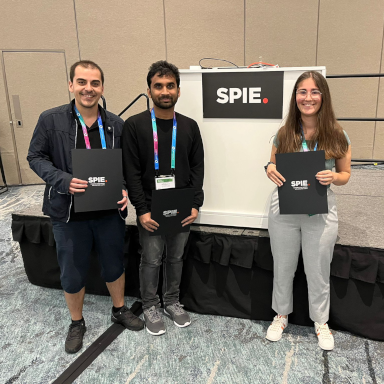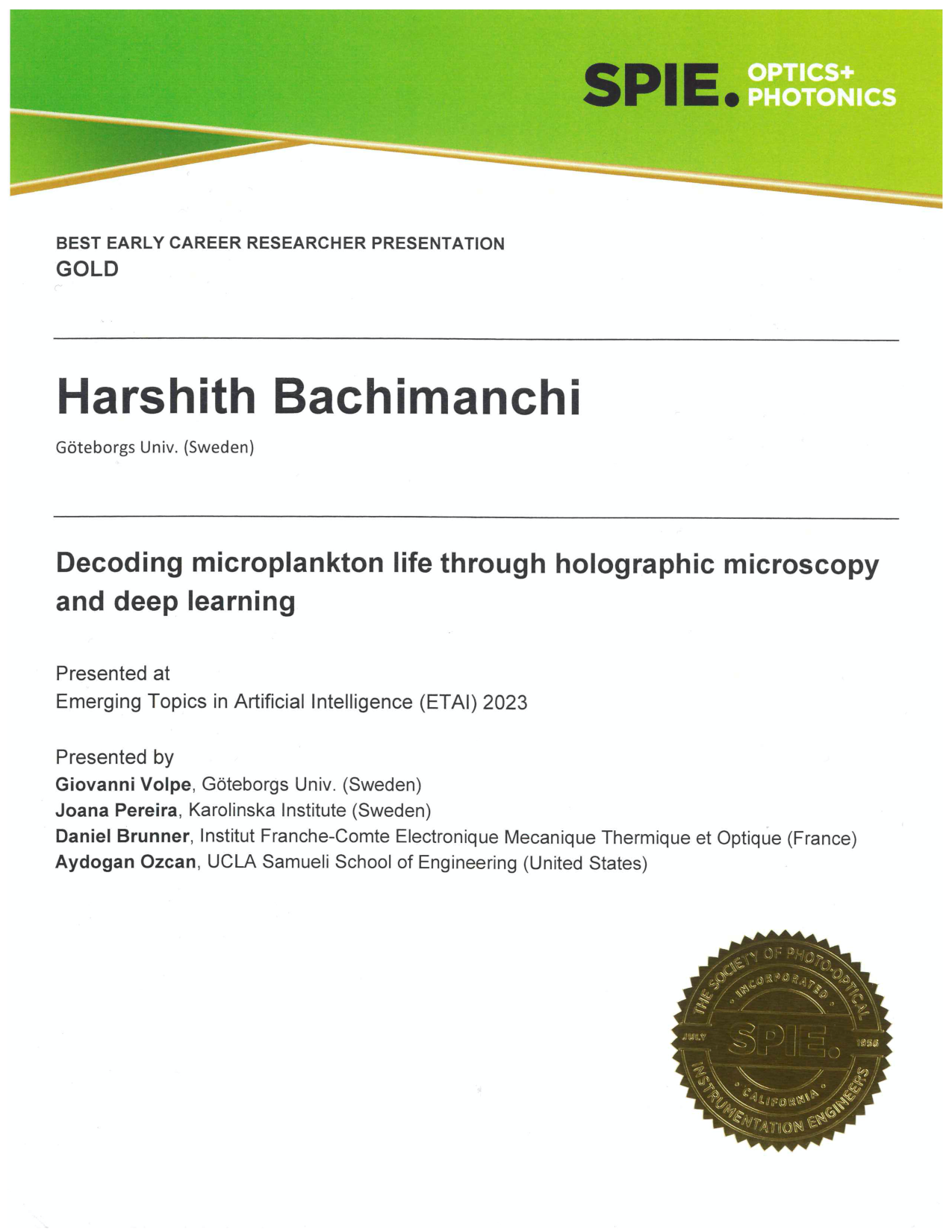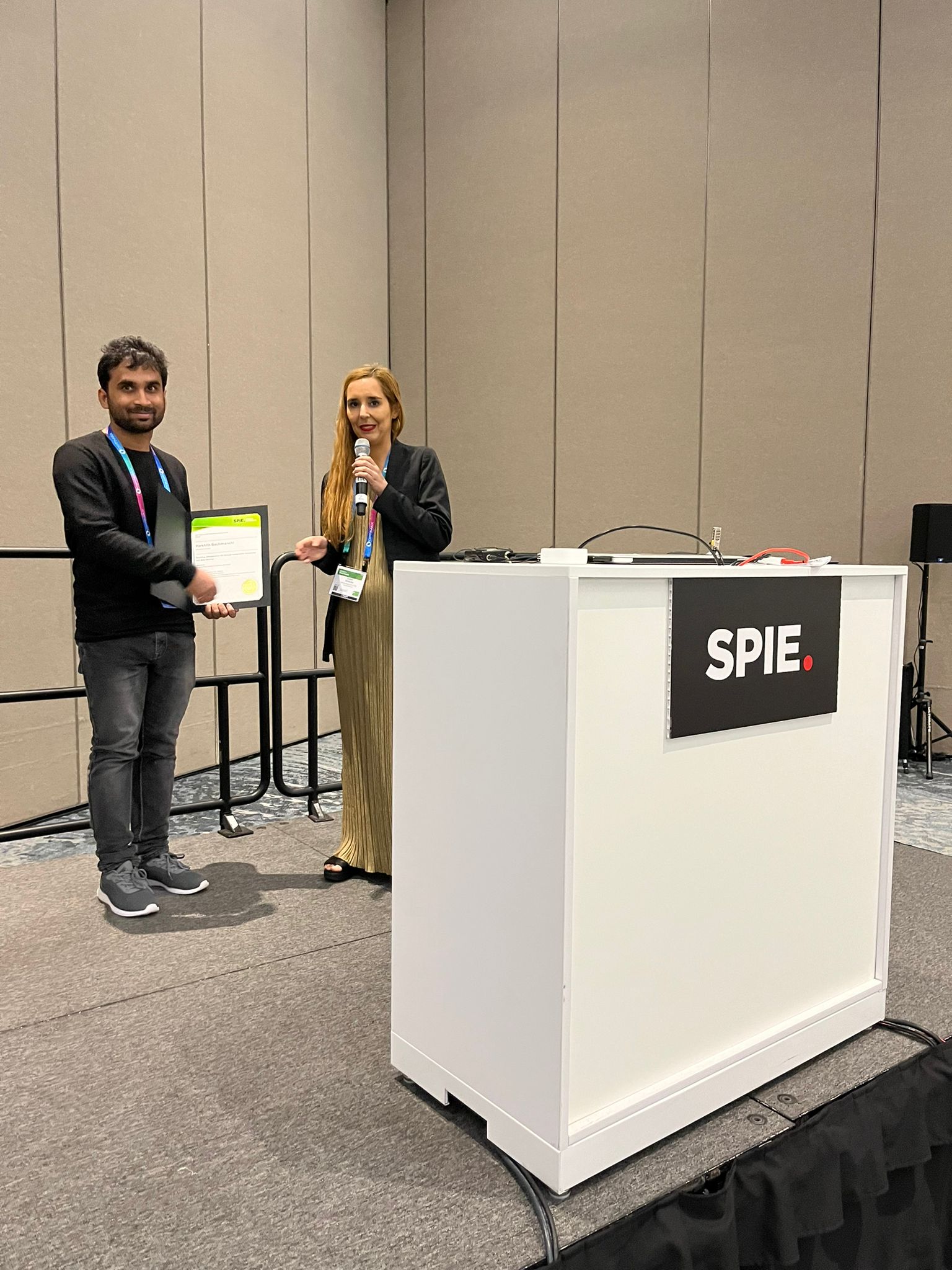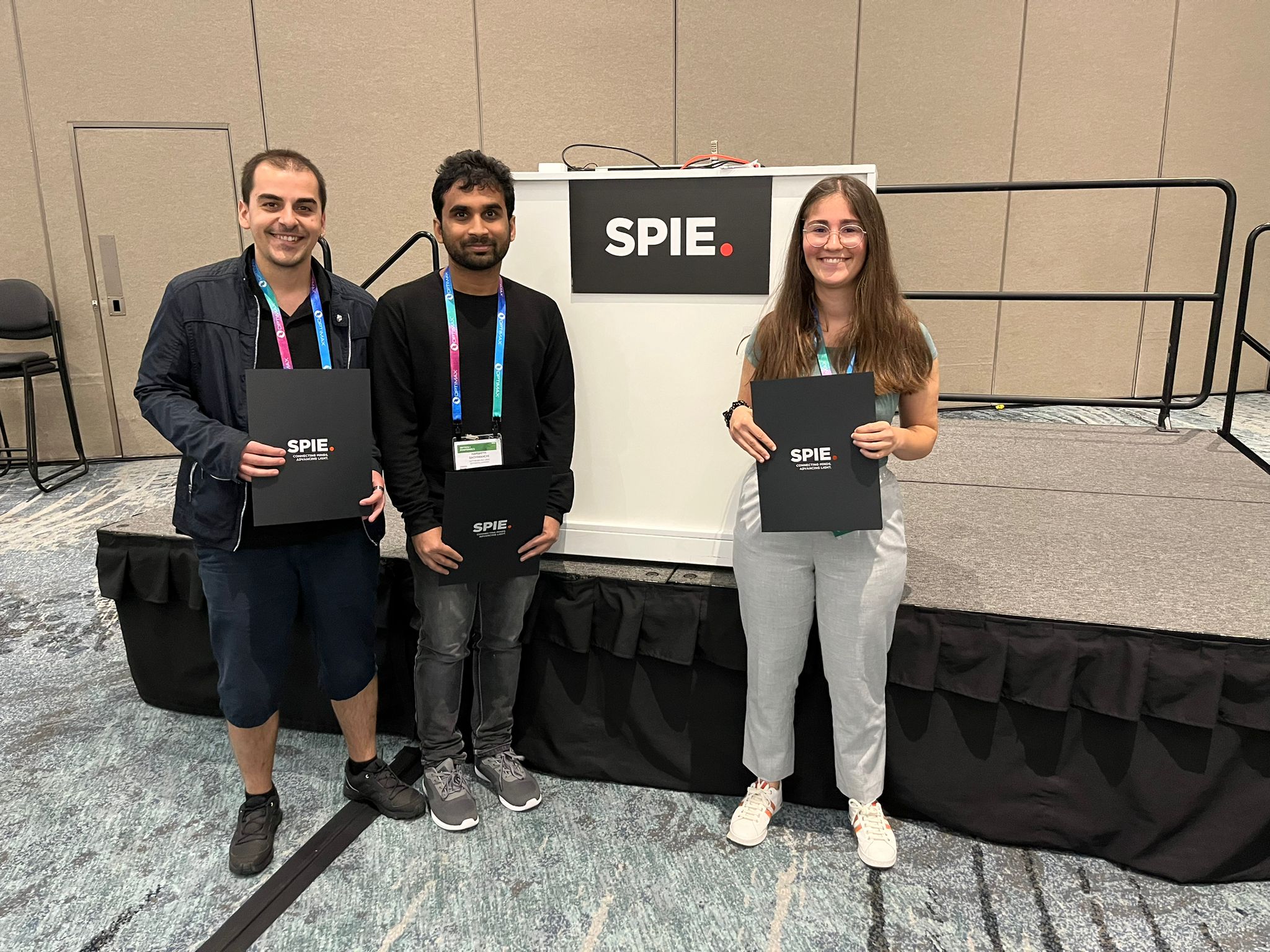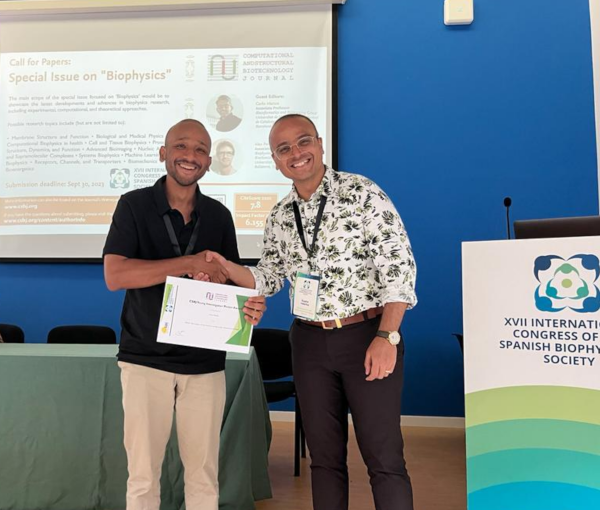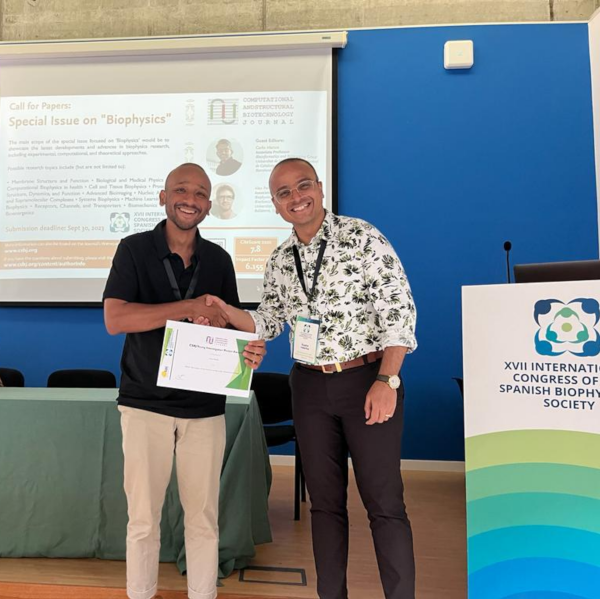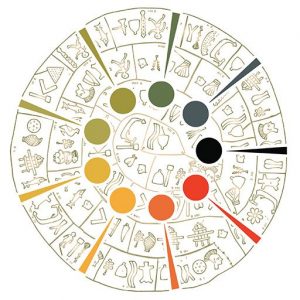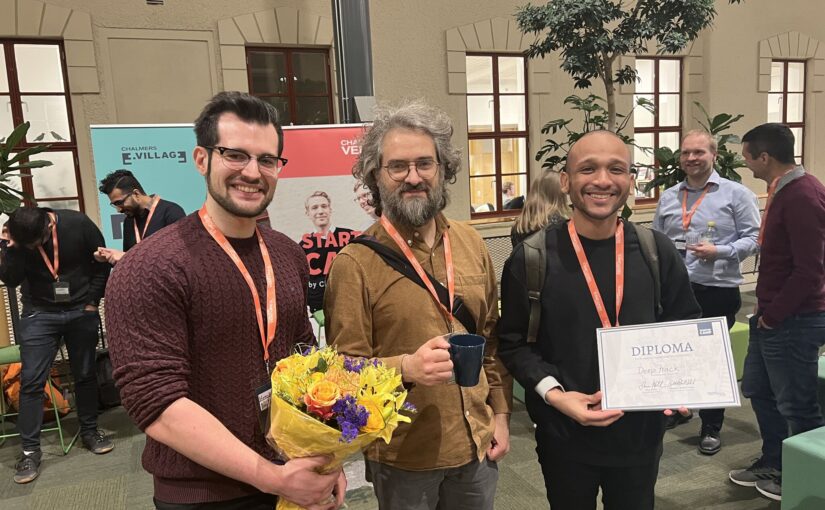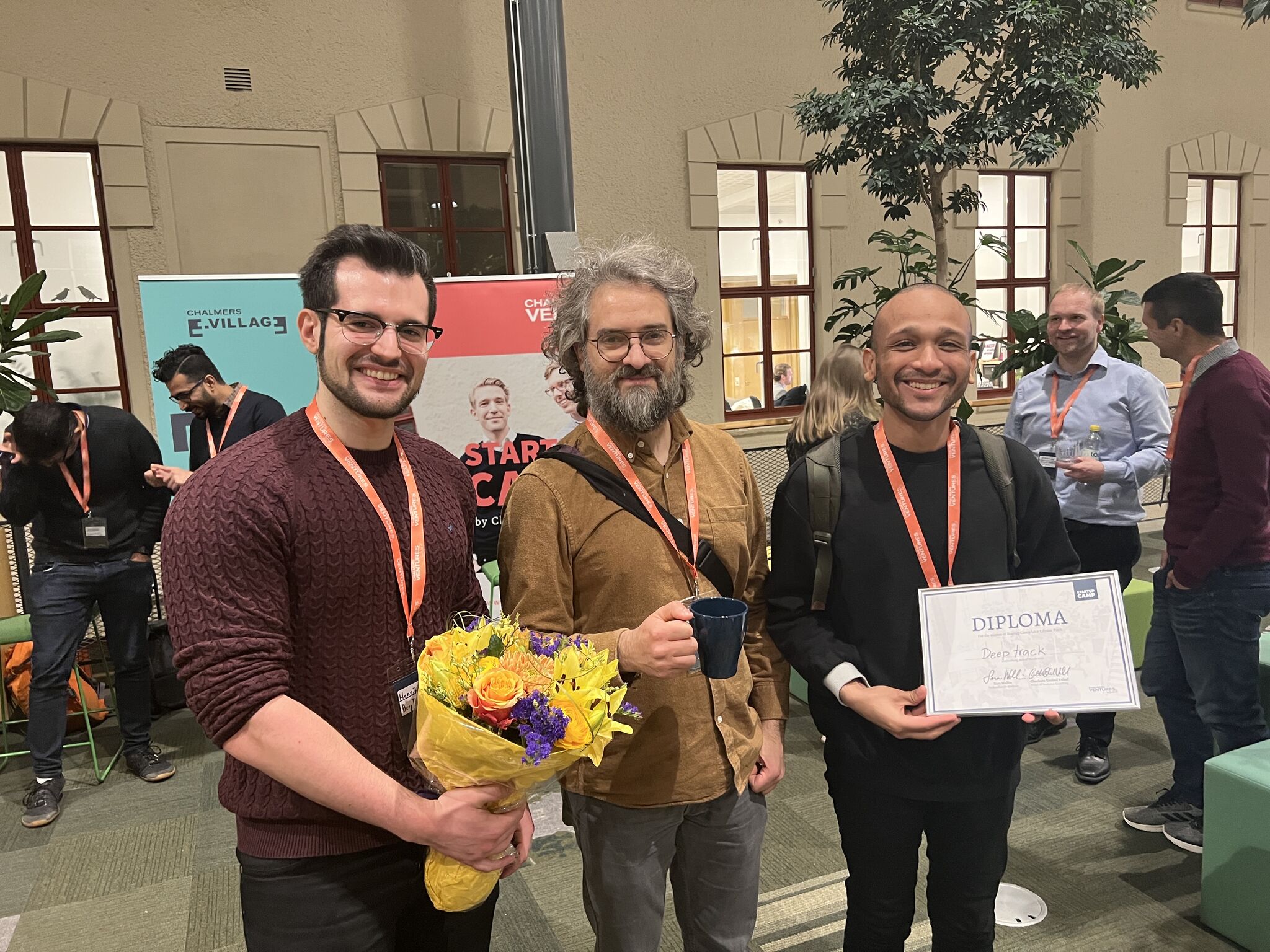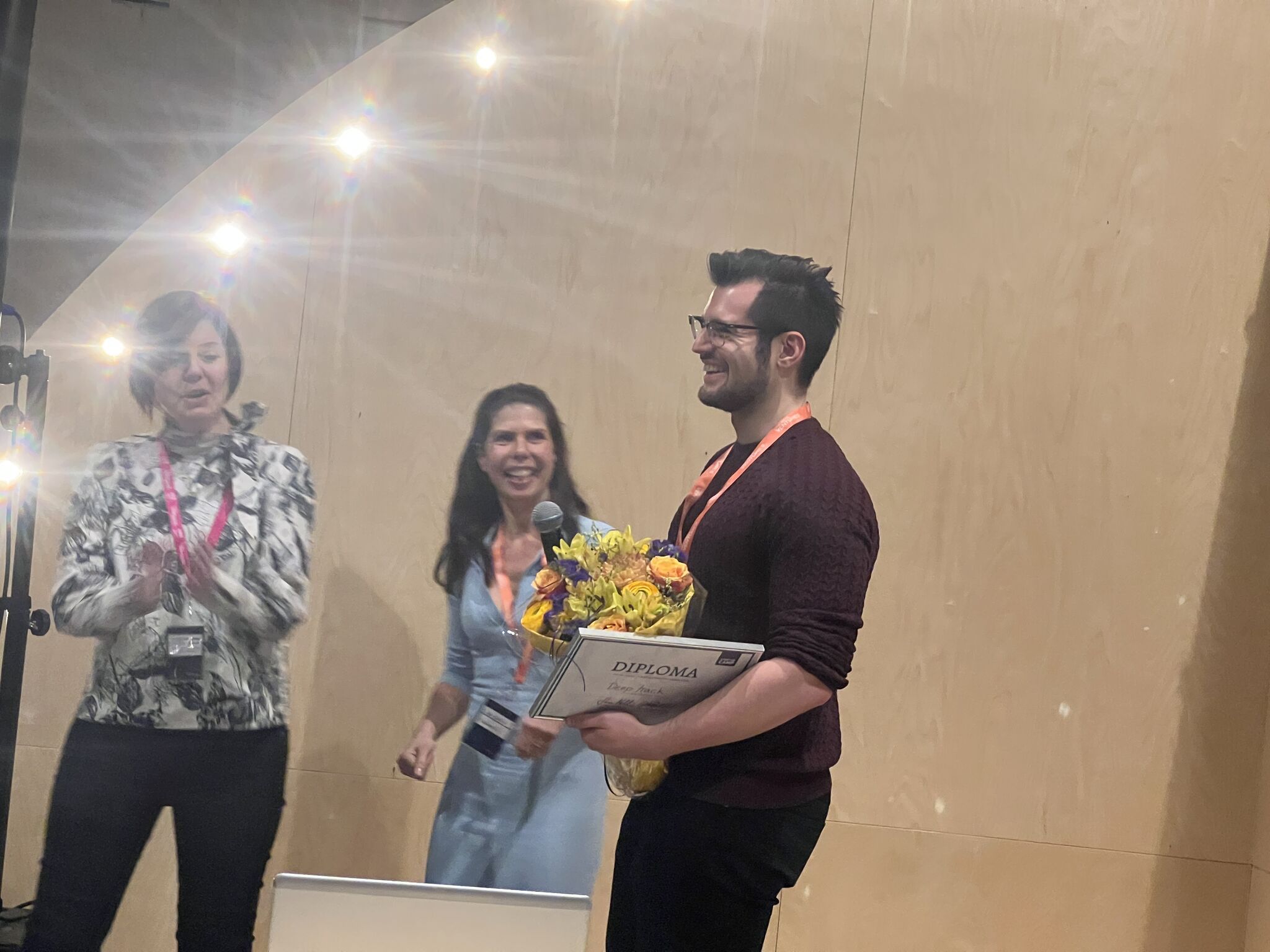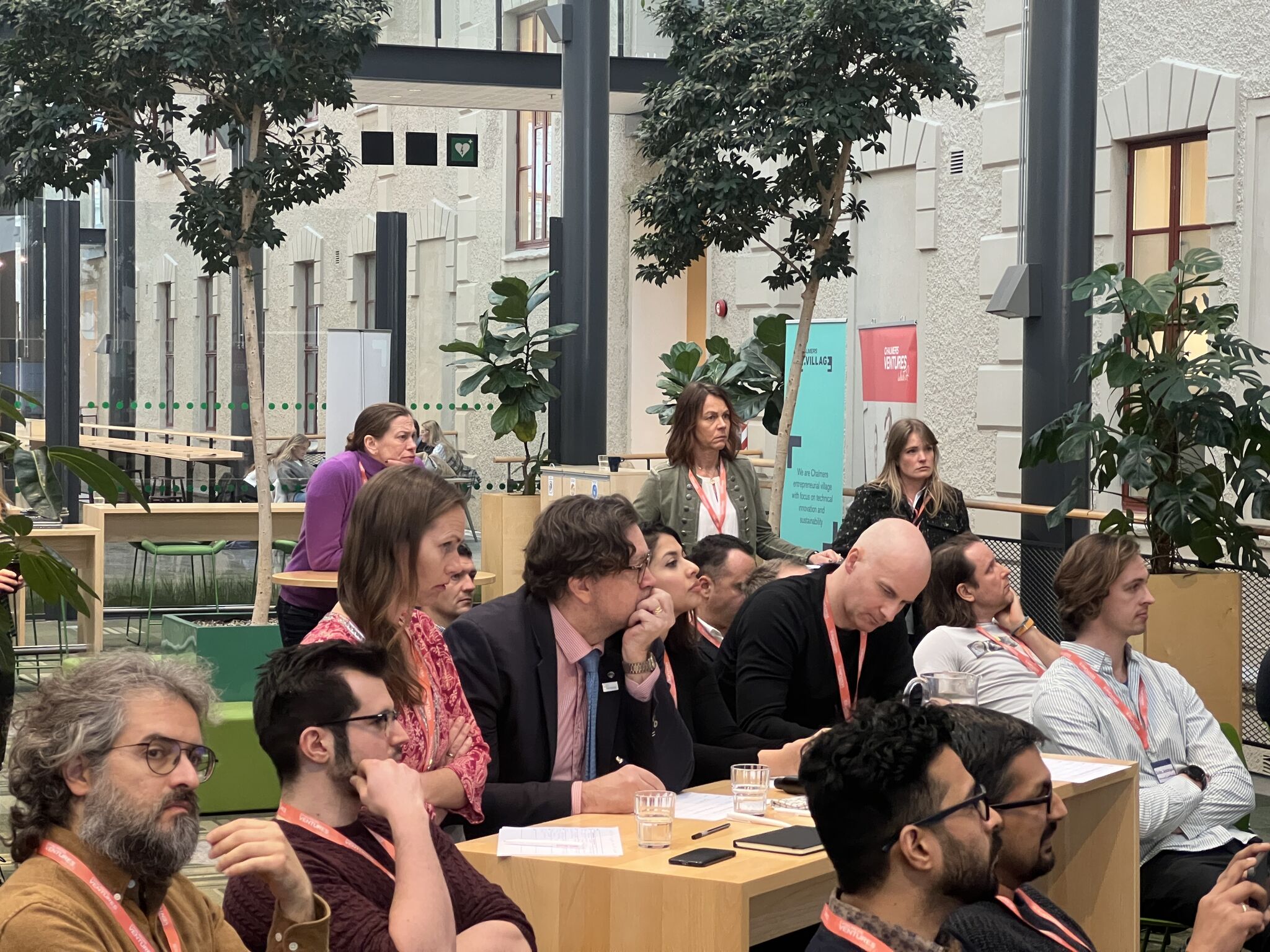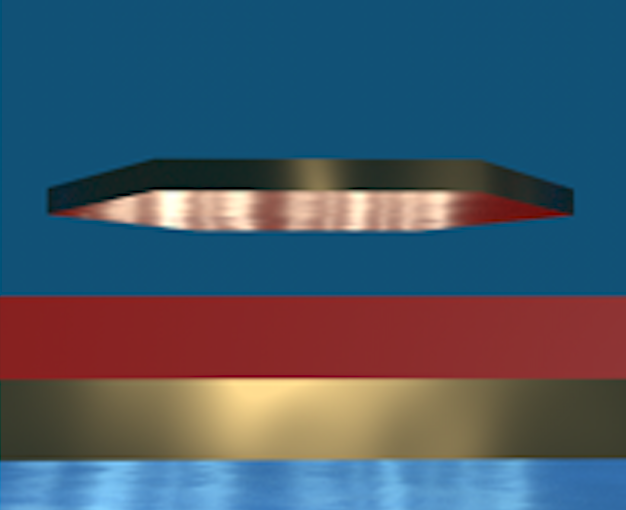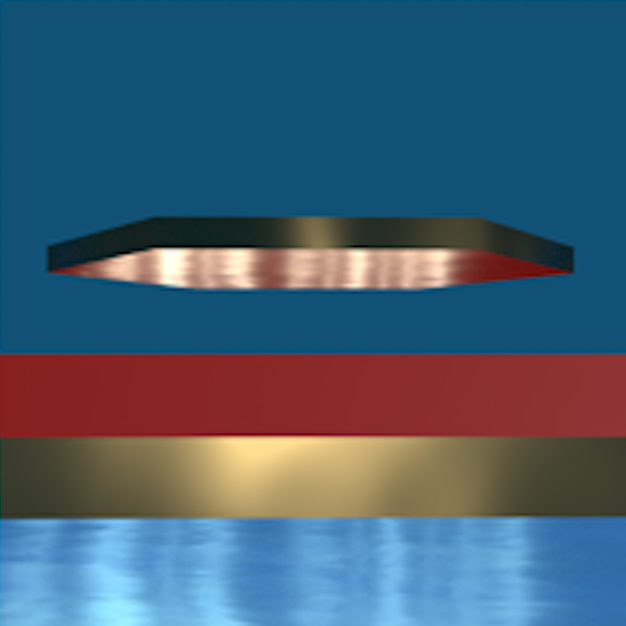
The award, consisting of a certificate, and a cash prize of 500 €, is sponsored by Journal of Physics: Photonics (JPhys Photonics) from IOP Publishing.
Harshith received the prize for his presentation on “Bringing microplankton to focus: Holography and deep learning”, where he demonstrated that the combination of holographic microscopy and deep learning can be used to follow the marine microorganisms throughout their lifespan, continuously measuring their three-dimensional positions and dry mass. The deep-learning algorithms circumvent the computationally intensive processing of holographic data and allow rapid measurements over extended periods of time. He exemplified this by showing detailed descriptions of micro-zooplankton feeding events, cell divisions, and long-term monitoring of single cells from division to division.
The article related to this presentation can be found at the following link: Microplankton life histories revealed by holographic microscopy and deep learning.


